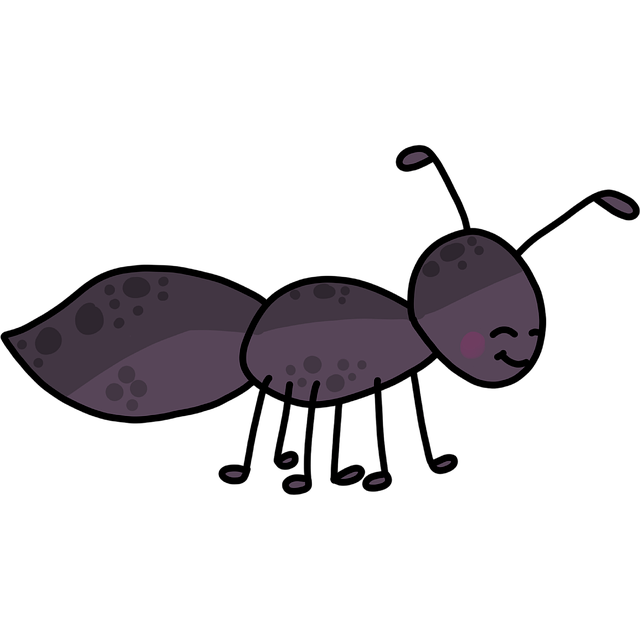Ants pose a complex challenge due to their intricate social structures and chemical communication. Effective ant control involves understanding their behavior, such as pheromone trails for navigation, and addressing infestations promptly. Early signs of an infestation include ant trails, nests, damaged food packaging, and ants in multiple rooms. Traditional pesticides are harmful to health and the environment, encouraging instead integrated pest management (IPM) strategies like essential oils, physical barriers, and beneficial insects. Chemical treatments, like contact insecticides or outdoor baits, can be swift and effective but should be applied safely by professionals. Preventive measures include sealing entry points, regular cleaning, maintaining a clean environment, and creating outdoor barriers with essential oils. DIY methods and professional services offer solutions for ant control, with the latter being more thorough and vital in commercial settings.
Tired of sharing your space with unwelcome guests? Discover effective ant control methods to reclaim your home or business. From understanding ant behaviors to identifying signs of infestation, this guide covers it all. Explore traditional and natural solutions, chemical treatments, preventive measures, and DIY tips for fast and efficient ant eradication. Learn when to seek professional help for a lasting solution to these persistent pests.
Understanding Ant Behaviors and Habits
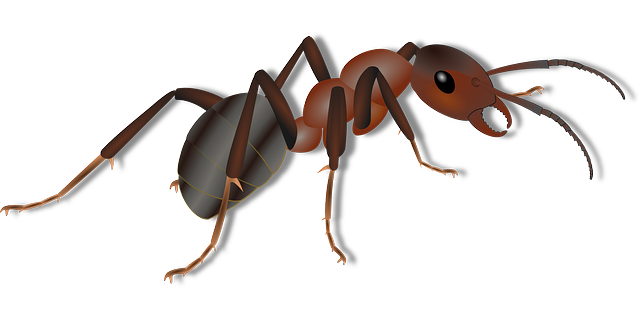
Ants are social insects with complex communication systems, which allow them to organize and work together efficiently. Understanding their behaviors and habits is crucial for effective ant control. These tiny creatures have a structured society, where each colony member has a specific role, such as workers, soldiers, or reproductives. They leave trails of pheromones, which serve as a type of chemical communication, helping them find food sources and navigate back to their nests.
Ants are highly adaptable and can quickly establish new colonies when disturbed. They prefer environments with access to food, water, and shelter. By identifying these preferences, one can implement targeted ant control measures. This includes sealing entry points, removing potential food sources, and using appropriate insecticides or natural repellents. Effective ant control requires a thorough understanding of their biology and behavior, enabling homeowners and professionals alike to develop strategies that disrupt their activities without causing harm to other insects or the environment.
Identifying Signs of an Ant Infestation
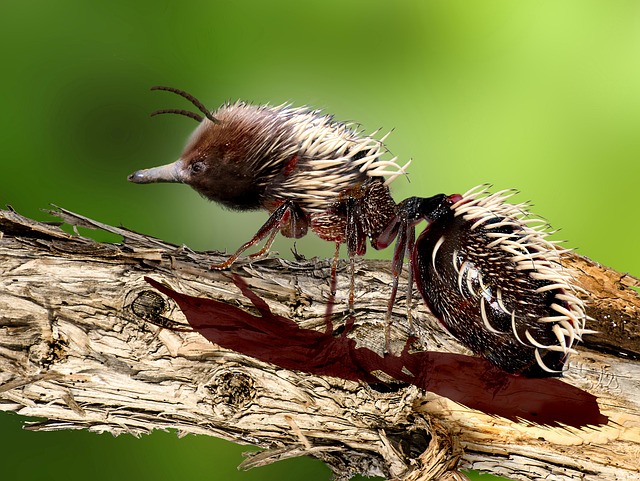
Ants are relentless invaders that can quickly turn into a full-blown infestation if left undetected. Identifying signs early on is crucial for effective ant control. Keep an eye out for small trails of ants scurrying across floors, walls, or countertops, especially near food sources. These trails indicate active colonies nearby. Additionally, noticeable piles of ant nests, often resembling small mounds or crumply paper, can signal a significant presence in your home.
Other telltale signs include damaged food packaging, especially in pantry areas, and sudden appearance of ants in multiple rooms. If you spot ants entering through cracks or gaps, it’s a clear indication that they’ve found their way inside. Regular inspections, particularly after meals, can help you stay ahead of these persistent pests.
Traditional Methods of Ant Control
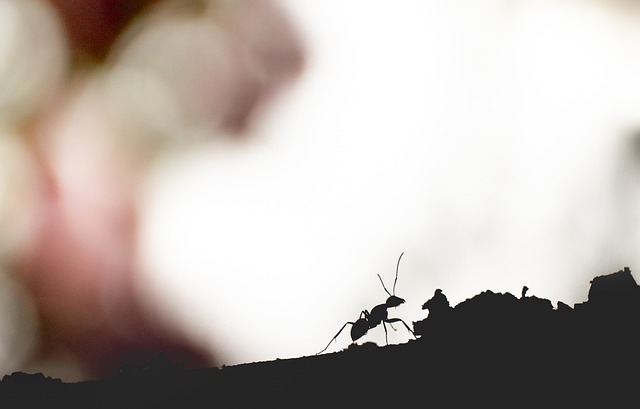
Traditional methods of ant control often involve chemical pesticides, which can be effective but also pose significant risks to human health and the environment. These chemicals can persist in the soil, water sources, and even indoor spaces, leading to long-term exposure for both inhabitants and local ecosystems. Additionally, ants are highly adaptive creatures, quickly developing resistance to common pesticides over time.
As a result, many professionals now recommend integrated pest management (IPM) strategies that focus on eco-friendly and less toxic alternatives. These methods include using natural repellents like essential oils, setting up physical barriers with diatomaceous earth or sticky traps, and encouraging beneficial insects that prey on ants. Such approaches not only provide more sustainable ant control but also promote a healthier living environment for both people and pets.
Natural and Environmentally Friendly Solutions
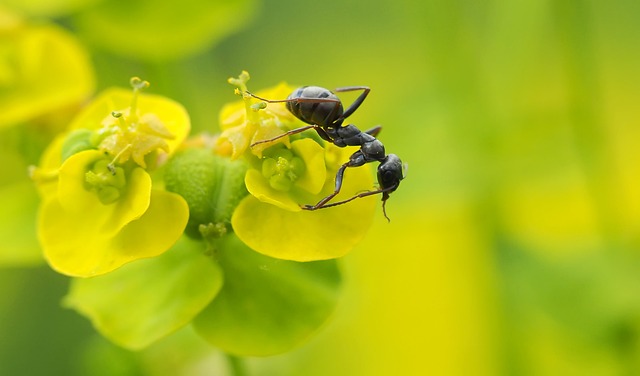
In the quest for effective ant control, it’s essential to explore natural and environmentally friendly solutions that offer a safer alternative to chemical pesticides. These methods focus on harnessing the power of nature to deter and eliminate ants while minimizing harm to the ecosystem. One such approach involves using essential oils, like peppermint, lemon, or eucalyptus oil, which ants find unappealing. Diluting these oils and applying them in problem areas can act as a natural barrier, repelling ants without causing any significant environmental damage.
Additionally, beneficial insects, such as certain species of wasps and spiders, play a crucial role in maintaining ecological balance. Encouraging their presence in your surroundings can help control ant populations naturally. For instance, introducing parasitic wasps that lay eggs inside ant nests can disrupt the ants’ lifecycle, leading to a gradual decline in their numbers. These natural solutions not only provide effective ant control but also contribute to a healthier and more sustainable environment, making them an appealing choice for those prioritizing eco-friendly practices in ant management.
Chemical Treatments for Ant Eradication
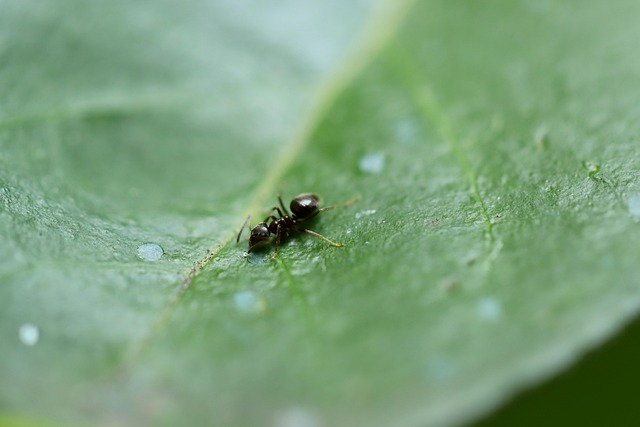
Chemical treatments are a common and effective method for fast ant control, offering quick results in eliminating ant infestations. These treatments involve the application of insecticides that target ants directly or disrupt their colony structure. For indoor spaces, contact insecticides can be used to kill ants on contact, while baits are more suitable for outdoor areas, attracting and killing ants discreetly.
When it comes to ant control, professionals often recommend a combination of chemical and non-chemical methods for optimal results. Chemical treatments should always be applied with care, following manufacturer instructions, and by trained personnel to ensure safety and effectiveness. This approach is particularly useful for severe infestations or areas where natural methods have proven ineffective.
Preventive Measures to Avoid Future Infestations
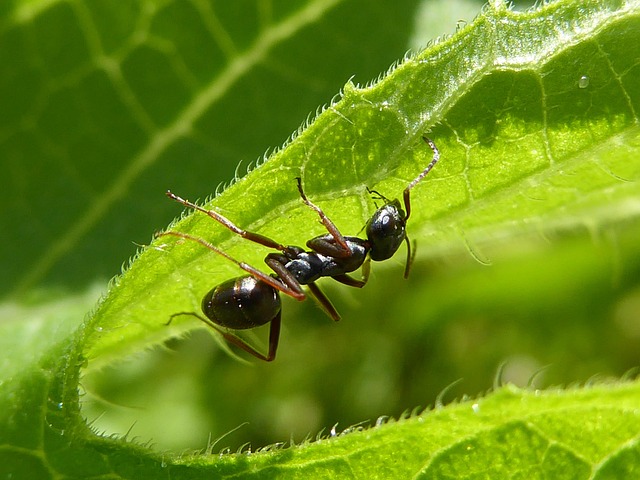
To prevent future ant infestations, it’s crucial to understand and address their preferred entry points into your home or property. Sealing gaps and cracks in walls, floors, and ceilings with caulk or other suitable materials can significantly deter ants from finding their way inside. Regularly cleaning and wiping down surfaces, especially those that come into contact with food, can remove trails left by ants and disrupt their navigation systems.
Maintaining a clean environment is another vital preventive measure. Promptly wiping up spills, storing food in airtight containers, and regularly emptying garbage bins reduce the allure of your space for ants. Additionally, keeping plants away from entry points and removing any wood or debris that might serve as potential nesting sites can further protect against ant control issues.
DIY Ant Control Tips for Homeowners
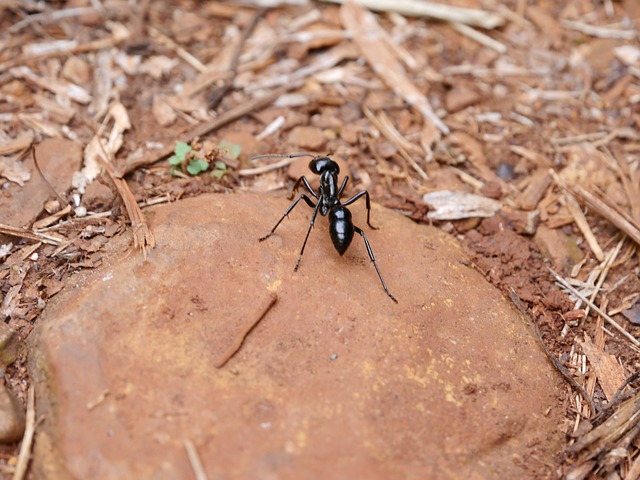
Many homeowners prefer taking a DIY approach to ant control, and there are several effective tips to help manage an ant invasion naturally. One of the most crucial steps is identifying the entry points where ants are accessing your home. Seal any cracks or gaps around windows, doors, or pipes using caulk to disrupt their path. Keeping your home clean is also vital; ants are drawn to food remnants and sweet substances, so wiping down surfaces and sweeping floors regularly can deter them.
Creating a barrier outside your house using certain essential oils like peppermint or lemon can be a game-changer. Ants dislike these strong scents, so applying them around windowsills and doors may prevent their entry. Additionally, maintaining a well-trimmed lawn and removing potential nesting sites nearby will make your home less appealing to ants.
When to Seek Professional Ant Extermination Services
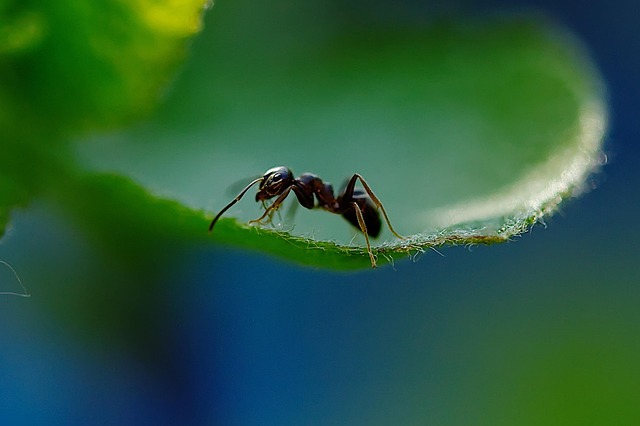
If you’ve noticed an ant infestation in your home or office, it’s important to take action promptly for effective ant control. While there are over-the-counter solutions available, professional ant extermination services offer a more comprehensive and long-lasting solution. Consider seeking expert help if the infestation is severe, persistent, or if ants have accessed sensitive areas like food storage, pharmaceuticals, or electrical equipment.
Professional exterminators possess the knowledge and tools to identify ant species, trace their trails, and eradicate them at the source. They can also provide valuable insights into preventing future infestations by sealing entry points and implementing preventive measures. This is especially crucial in commercial spaces where regular ant control is essential for maintaining a hygienic and safe environment.
